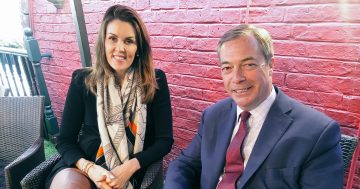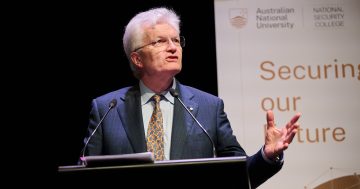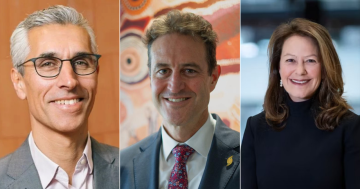 Researchers at the University of Canberra have warned that medical ‘fake news’ on television has the potential to cause harm in the community.
Researchers at the University of Canberra have warned that medical ‘fake news’ on television has the potential to cause harm in the community.
In a new report, the University’s Assistant Professor of Pharmacy, Jackson Thomas (pictured) and his colleagues have called out broadcast media outlets responsible for disseminating ‘fake news’ about illnesses and other medical issues.
Their report, Fake news: Medicines Misinformation by the Media, found that while the media could increase health knowledge, change attitudes and positively influence behaviour, the release of poor and incorrect public health information could have adverse effects on Australians’ health.
Dr Thomas and his fellow researchers reviewed various studies to produce the report.
They found that viewers placed almost as much trust in information on cancer obtained from the television (71 per cent) as they did from a physician (93 per cent).
They also found that the media sometimes dramatised or distorted different illnesses to draw in viewers. For instance, portrayal of mental illness could often emphasise criminality.
“Poorly designed or evaluated studies contribute to incorrect information disseminated via the mass media — i.e. the pervasive view that vaccines are associated with autism, in spite of the belief being repeatedly refuted by science,” the report says.
“Some popular medical talk shows had influential TV doctors sharing medical information with viewers in a relatable, engaging way, but this information was often far-fetched or had no scientific basis.”
Similarly they said, certain science journalism and documentary programs catalysed large spikes or huge decreases in the use of certain medications, sometimes with potentially dangerous results.
Dr Thomas said members of the public needed to be cautious about where they got their medical advice.
“Don’t just rely on what you see on TV,” he said.
“It’s often sponsored or not thoroughly researched, and TV dramas are made for entertainment, not education.”











